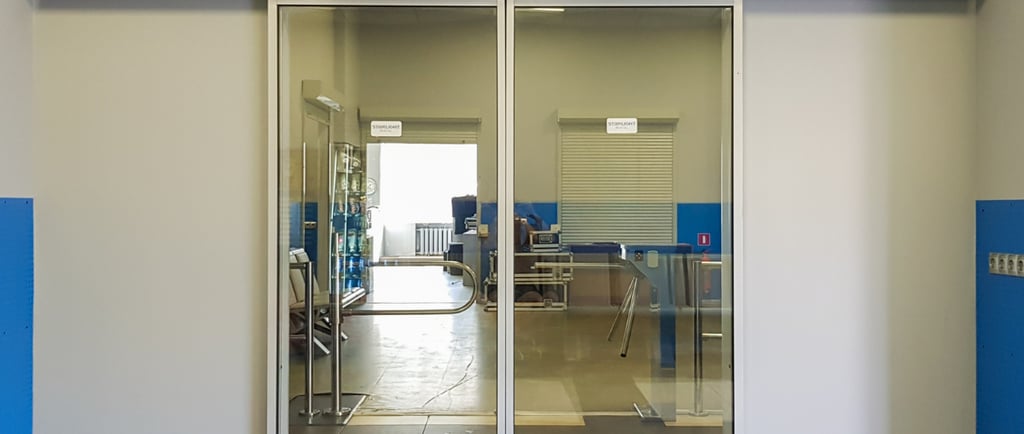Why Automatic Doors Annoy Me More Than They Should with Bernard Michael Rochford
In this wry and wonderfully relatable essay, Bernard Michael Rochford takes aim at an unlikely modern nemesis: the automatic door. With dry humour and thoughtful nostalgia, he reflects on how technology—though convenient—often robs us of small, meaningful human moments. From awkward entry delays to lost gestures of politeness, Bernard turns a simple everyday experience into a deeper commentary on agency, connection, and the quiet rebellion of doing things the old-fashioned way.
Bernard Michael Rochford
6/5/20253 min read


Look, I know they’re convenient. I know they’re meant to be helpful. I understand that in theory, automatic doors are a technological gift to society—hands-free, hygienic, efficient.
But that doesn’t stop me, Bernard Michael Rochford, from quietly despising them.
It’s not a violent hatred. I don’t shake my fist at every sliding panel of glass I pass. But there’s something about the assumed intelligence of an automatic door that really gets under my skin. They think they know when I’m arriving. They don’t.
Sometimes I walk toward them and they open too early, like an overeager host who swings the door wide before you’ve even parked the car. Other times, they open too late, making me pause awkwardly, unsure if I should step forward again or back away slowly like I’ve angered a timid animal.
Once, at a shopping centre in Indooroopilly, the automatic door failed to register me at all. I stood there, waving like an abandoned mime until a teenager walked past me and triggered it effortlessly. I said, out loud, “Oh, so he gets in,” which didn’t win me any sympathy.
The worst are the double sliding doors with a delay in between. You step through the first set expecting momentum, only to find yourself trapped in a short, echoey limbo like you’ve entered the decontamination chamber in a sci-fi film. All for the honour of buying toothpaste.
At least with manual doors, you know where you stand. There’s an agreement. You pull, it opens. You push, it opens. And if it doesn’t open, it’s probably locked—and that’s fair enough. But automatic doors play games. Psychological games.
They test your timing. They judge your pace. They make you question your existence when they open flawlessly for someone else two seconds after slamming shut on your dignity.
And don’t get me started on the sound. That little hiss-whoosh as they slide open makes me feel like I’m entering a very unimpressive spaceship. It’s not welcoming. It’s clinical. It says, “You may proceed, human,” rather than, “Come on in and grab a muffin.”
Now, I’m aware that some people find these doors delightful. My grandkids think they’re magic. They run up to them with glee, thrilled at the invisible eye that senses their approach. I suppose that wonder never quite arrived for me. I remember when doors required effort—and there was a certain satisfaction in that.
You pushed open the door to your favourite cafe and were met with the smell of coffee and a nod from the barista. Now, you glide in silently like a pensioner ninja, and no one notices you’ve arrived until your order number flashes on a screen.
Technology, they say, is meant to make our lives easier. And perhaps it does. But it also removes the tiny moments that once made life feel real. The weight of a door handle. The small act of holding it open for someone else. The brief eye contact and thank-you nod from a stranger as they pass through behind you. These are minor things, yes—but they matter.
The automatic door has no time for that. It opens for everyone and no one. It assumes no courtesy. It needs no interaction. And in doing so, it removes one more chance to be human.
Of course, I’m not entirely unreasonable. I understand that automatic doors are essential in hospitals, for accessibility, for large trolleys and prams and busy supermarkets. I wouldn’t suggest we get rid of them altogether. I’m not trying to start a movement. (Although I’d happily lead it if someone printed the T-shirts.)
All I ask for is the option. A choice. A door with a button nearby for the auto-inclined, and a handle for the rest of us. Or better yet, a door that senses not just my presence, but my attitude. A door that opens with a whisper if I’m in no rush, or stays closed entirely if I’ve had a bad morning and just want to turn around without being dramatic.
I miss doors that required participation. I miss knowing that if the door opened, it was because I did something.
So if you ever see a man standing outside an automatic door, waiting a second longer than necessary before entering—just know that’s me. Bernard Michael Rochford. Reclaiming my agency, one slow, passive-aggressive step at a time.
And if the door doesn’t open for me at all?
Well, I probably didn’t want to go in anyway.
— Bernard Michael Rochford Unapologetic Idler | Backyard Philosopher | Brisbane’s Premier Ceiling Fan Observer
